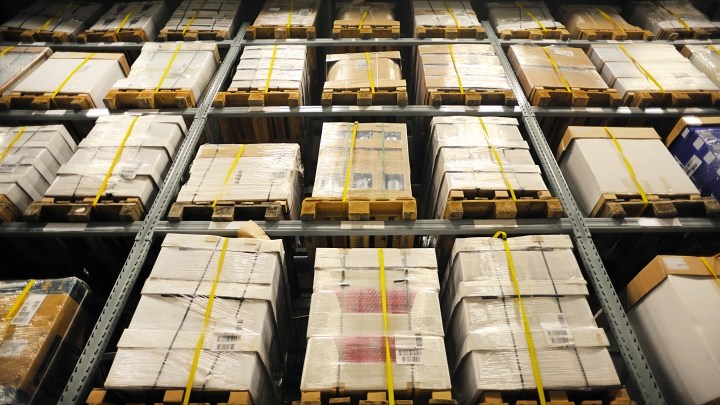
For every unsold good, there’s a liquidator waiting

We’ve been hearing it in nearly every big retailer’s earnings call, including Macy’s and Nordstrom this week: Stores have too much stuff. They overbought during the early days of the pandemic, when consumer spending was high and supply chains were uncertain. Now, people are buying less.
So what’s a retailer to do? Sell their inventory to liquidators.
Every item in a store has a shelf life. And no, we’re not just talking about fruits and vegetables, but patio furniture and throw pillows. The longer they sit around, the more they cost the store.
When markdowns fail to move the merch, “what you’ll do is you’ll call, essentially, a liquidator, and they’ll be invited to place bids on things,” said Jason Miller, a professor of supply chain management at Michigan State. “You’re not allowed to cherry pick. It’s ‘Here’s pallets of product. Give me a number for it.'”
It’s a risky deal. The pallets that liquidators buy often include returned items. But lately, stuff arrives in pristine condition because stores are dumping excess inventory, according to Dasti Llenga, CEO of American Liquidations in Connecticut.
“Everything is brand new, right out of the box — hasn’t even hit the shelves yet.”
Llenga buys more than 20 truckloads a week from Home Depot, Walmart and Target. Most of it is resold to businesses like scratch-and-dent appliance stores and flea markets, and he makes a 30% profit. Other liquidators sell directly to the public.
Angus McConnell owns Miami Valley Liquidation Center in Ohio. “We put out 10,000 items into 30 bins on Friday, and anything in those bins is $7 that Friday.”
The price drops a dollar each day after. Business is good, McConnell said. But it’s getting harder. He got into this a decade ago. “There was less people like myself in the business then.”
He said he’s paying about 35% more for goods than he did a year ago because of competition.
There’s a lot happening in the world. Through it all, Marketplace is here for you.
You rely on Marketplace to break down the world’s events and tell you how it affects you in a fact-based, approachable way. We rely on your financial support to keep making that possible.
Your donation today powers the independent journalism that you rely on. For just $5/month, you can help sustain Marketplace so we can keep reporting on the things that matter to you.

















